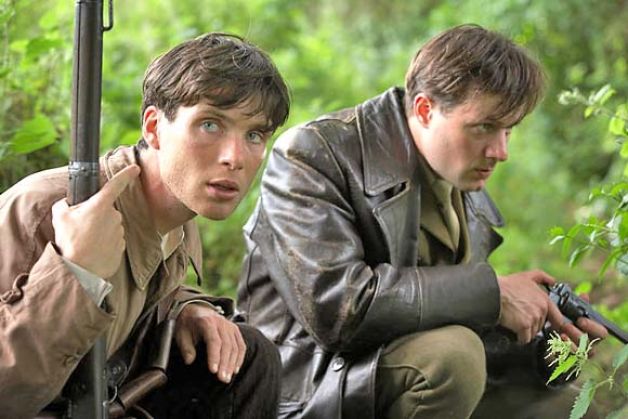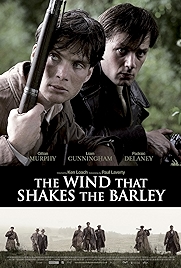A polemic rather than a drama, about a blameless Irish lad who becomes a Republican after seeing with his own eyes what the British are up to. Cillian Murphy plays the lad, peaceable to the point of cowardice, the prospective medical student who is caught up in the struggle to get the Brits out of Ireland in the 1920s. His brother (Pádraic Delaney) meanwhile heads off in the other direction – initially bellicose but softening his stance when a political compromise (a “sell out”) is brokered. Director Ken Loach’s film is partisan to the point of ludicrousness – at one point the Brits are depicted swooshing by in cars with their heads tilted upwards in the cinematic shorthand reserved for Nazi officers. Worse than that the film is also quite stupendously dull. Though it has received good reviews in quarters where any fight against colonial powers, any depiction of the Irish as good, any kicking of the Brits (it was a long time ago, guys) gets nodded through. Loach, generally a director at his worst when he’s wagging the finger, efficiently brings writer/collaborator Paul Laverty’s dry screenplay to life, a mix of battles out in the overcast countryside and verbal jousts back in the bars, courtrooms and churches of the urban landscape. Murphy is saddled with a one-ply character and is incapable of doing much with it. The blame here is squarely with Laverty, whose last feature-length collaboration with Loach was Ae Fond Kiss, another conversion of a social issue (marriage between a white woman and Asian man) into leaden drama.
The Wind That Shakes the Barley – at Amazon
I am an Amazon affiliate
© Steve Morrissey 2013


If you had paid attention to the dialogue rather than whine about the lack of action and it being dull and if you did your research of the era , you’d probably realise that your claim about partisan is ludicrous .
“ Brits are depicted swooshing by in cars with their heads tilted upwards in the cinematic shorthand reserved for Nazi officers.”
Hate to break it to you, but The Irish (often pro British actually) and even the British Media of the day , the minutes of House of Commons sessions, British and Irish military records , witness statements from British and Irish militants who served in the war and their views thereafter (eg Bernard Montgomery) would make it clear that the Black and Tans and the Auxies , units of the RIC (British Army personnel weren’t that bad in their conduct, they were at least more disciplined compared to the Tans n Auxies ) did exactly what was portrayed in the film. None of it was made up or fictionalised .
IRA attacked or took pot shots at RIC , Auxies , Tans and the occasional British soldier , the said forces retaliated not by intentionally going after the IRA but by attacking civilian homes and businesses . Eg sack of Cork City , Balbriggan , Knockcroghery, and taking pot shots at civilians , including the odd priest
“ Though it has received good reviews in quarters where any fight against colonial powers, any depiction of the Irish as good, any kicking of the Brits (it was a long time ago, guys) gets nodded through. Loach, generally a director at his worst when he’s wagging the finger”
It could have been directed by anyone, the film is an accurate portrayal of what went on. Even the socialists stuff, while overplayed a tad bit, existed . The fact that you bemoan that the events were a long time ago as an excuse as to why good reviews shouldn’t be given , highlights British people’s denial and refusal to recognise what happened in the first place .
It’s one thing to have issues with Loach or to complain about the pace or dullness , it’s another thing to comment about events that you blatantly don’t know about or have any interest in dealing with .
The hilarious thing is that if the film was more action pact, you’d complain that it glorified war, the IRA etc .
Thanks for the comment, Christy.
We don’t see eye to eye on this, obviously, though I take your points about historical facts.
I watched this 16 years ago and my memory of it is a bit hazy, I think it was the whiter-than-white nature of Cillian Murphy’s character that I had trouble with. The honest-to-goodness, apolitical, peace-loving guy who is radicalised by events and moves like a blameless blank cipher through the drama.
As for the socialist/nationalist stuff you refer to, this was one of the few moments when, I thought, the film became interesting, because Loach and Laverty, the writer, were exploring ideas. Too much of the rest of the film felt like a rant. And no matter how justified that might be, it’s not for me.
Cheers
Steve